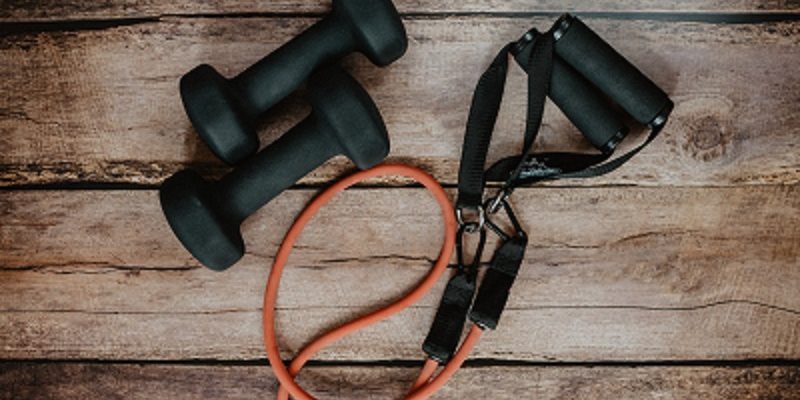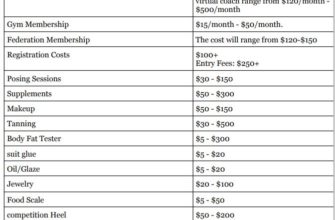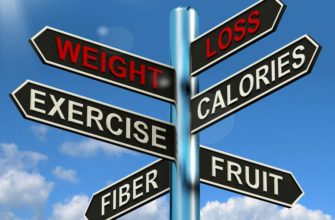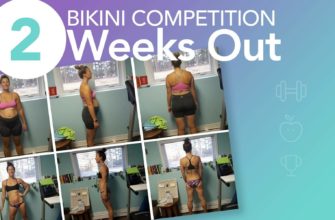People spend a lot of time and effort to be physically fit. They go through personal growth, exercise programs that are often painful but rewarding, with improved physical health and good memories for life after achieving their goal weight or muscle mass levels, etcetera. Exercise inspires many people because they can see its positive effect on your body when you’re done working out. which leads one into believing what else could there be if not better benefits from exercising again?
Exercising daily offers people an increased sense of well-being. People who exercise have more energy throughout the day, sleep better at night, and are much calmer about themselves too!.
Exercise has been seen as an effective treatment for many mental health issues. For example, it helps reduce depression, anxiety, and ADHD symptoms by relieving stress and a happy mood, leading people to feel better overall – even if you’re not into sports or fitness!
Anyone who exercises may learn how physical activity impacts their moods, enhancing energy levels with each workout session. In addition, it gives them the chance of living more fully every day than before they started exercising regularly.
The benefits don’t stop there either: regular physical activity promotes healthy sleep patterns making our days less difficult since we can make better use of time spent sleeping (not sleepy during work hours).
- Depression and exercise
- Anxiety and exercise
- Stress and exercise
- ADHD and Exercise
- PTSD, trauma, and exercise
- Exercise also has other mental health advantages.
- Physical activity can help to improve memory and thinking.
- Increased self-esteem.
- Improved sleep.
- More energy
- Greater tenacity.
- Can’t seem to find the time to work out throughout the week? Consider yourself a weekend warrior.
- Overcoming Exercise Obstacles
- Here are some frequent roadblocks and ways to overcome them.
- Completely exhausted.
- Feeling overwhelmed.
- Feeling helpless.
- Feeling horrible about yourself.
- Feeling pain.
- Getting started with exercise when you are not in your right mind
- Schedule workouts when you have the most energy.
- Concentrate on activities that you enjoy.
- Make yourself at ease.
- Make fitness a social event.
- Simple methods to get more exercise that doesn’t need a trip to the gym
- Bottom Line
Depression and exercise

In a recent Harvard T.H Chan School of Public Health study, researchers discovered that running for 15 minutes or walking an hour reduced one’s risk of severe depression by 26%.
In addition to alleviating symptoms and helping you avoid relapsing if appropriately followed. Research suggests exercising regularly can improve mood stability and accountability in other areas such as weight gain prevention because it gives people something positive they look forward to each day.
Anxiety and exercise
It’s hard to believe, but exercise might be the best natural anti-anxiety medication around. Not only does it reduce tension and stress levels, but studies prove that people who work out regularly have increased physical vitality. And what better way than getting up off your rear end for you?
The release of endorphins in our brains will provide an instant sense of well-being, which makes exercise one great option when we feel stressed or anxious about anything at all.
Focusing on your body and how it feels will improve your physical condition more quickly. In addition, by breaking the cycle of constant anxieties flowing through our minds, we can be free from stress forever.
Stress and exercise
Stress is a part of life we all experience, but do you know what happens when stress becomes chronic? It can lead to physical symptoms and side effects that make your body feel like it’s going into overdrive. So how does this happen? When there isn’t enough time in our day for everything we need together as an individual with family obligations, job responsibilities, socializing – the pressure starts building. The mind may React by producing more cortisol (a hormone released during stressful situations) which tells us, ‘Hey, check out these negative feelings coming on fast.’ This causes muscle tension or cramps due to being tense uptight without realizing it because those muscles refresh themselves before anything else.
The physical activity of exercising can help to alleviate tensile stress and relax muscles. Many studies have shown strenuous exercise as an effective means of relieving depression, anxiety disorders like OCD or PTSD, and other conditions associated with muscle tension, such as MDD (major depressive disorder).
ADHD and Exercise
Exercise is one of the most effective ways to combat ADHD symptoms. Regular physical exercise spikes dopamine levels, which increases concentration and motivation while also elevating serotonin production in your brain – all things you need for an energized mood! Unlike prescription drugs such as Ritalin or Adderall that only work temporarily because they are temporary rather than long-term solutions, regular exercise can significantly decrease hyperactivity without any adverse side effects over time whatsoever.
PTSD, trauma, and exercise
While it’s essential to focus on your breathing and the peace of mind you’ll find in silence, paying close attention to how our bodies feel when moving can also make a huge difference. Suppose any part or muscle group feels stiffer than another during exercise (or even just everyday life). In that case, cross-movement exercises should be done until those areas become unresponsive as well–it may take some time but once unstuck from trauma reactions such as PTSD/trauma symptoms, these negative emotions will begin moving out with each breath taken!
Exercise also has other mental health advantages.
You don’t need to have a mental health condition for exercise and physical activity to make you feel better.
Exercise can assist with: –Mood, stress, attitude, or mental well-being (even if it feels like an energy boost).
Physical activity can help to improve memory and thinking.
Endorphins are the hormones that make you feel good after exercise. They help with concentration and cognitive function, which is why people love to do mindless activities like watching TV while binge-eating cookies in their sweat pants! Endorphins also promote new brain cell growth and prevent age-related deterioration, a.k.a getting more intelligent over time – sounds incredible, right?
Exercise can be one of those “feel-good” things for us humans because it releases endorphins into our bodies, causing mood enhancement by creating an effect similar to morphine yet without any significant side effects or addiction potentials associated in addition to that.
Increased self-esteem.
Regular physical activity is an investment in the mind, body, and spirit. When it becomes a habit, you may feel stronger and more confident about yourself, which will give your sense of worth a boost!
A regular workout can have many positive effects on people’s mental state, including increased self-esteem. In addition, studies show that those who engage regularly are less likely than others with different lifestyles to suffer from depression or anxiety disorders; since stress affects how our brain works (so does lack thereof), exercise helps keep both at bay by providing key benefits like lower blood pressure levels due to its beneficial impacts upon cardiovascular health – all this without even mentioning what happens when muscles release endorphins during intense exercises.
Improved sleep.
To sleep well, you must be active in the evening. Even small spurts of activity like cooking dinner or reading can aid with regulating your circadian rhythms and helping you feel more rested during those all-important Z’s. If exercising at night doesn’t work for whatever reason (maybe an early bedtime), try yoga poses which will relax muscles while inducing relaxation hormones like serotonin!
More energy
You can always feel more energized with a bit of physical activity. Try starting by doing just five minutes every day, gradually increasing as you are able and feeling enthusiastic!
Greater tenacity.
In the face of mental or emotional obstacles in life, exercise can help you build resilience and cope. This builds confidence through improved physical fitness and provides an opportunity for socialization that often gets lost due to loneliness caused by sicknesses such as depression and anxiety disorders.
With all these benefits on top, why would anyone choose not to be active?
You can get the physical and mental health advantages of exercise in just 30 minutes, no matter your schedule. That’s five times per week! And even if it means two 15-minute sessions or three 10 minute ones, that will work too – as long they all combined add up to more than 1 hour (or whatever more extended amount equal length workout time works for you).
The more energy we have, the better, so commit yourself on most days, no matter how little. As exercising becomes ingrained in our daily lives, eventually add another few mins here + attempt other things too 😉
Can’t seem to find the time to work out throughout the week? Consider yourself a weekend warrior.
The weekend is the perfect time to get physical. Of course, you can take a break from work or school, but don’t use it as an excuse for not being active! Instead, exercise whenever you have free moments—your mind and body will thank you in return with more significant health benefits than if they were never given this chance at revival.
Overcoming Exercise Obstacles
Exercise is a great way to get your mind off of whatever’s bothering you. I always feel better after a good workout, whether an anxiety attack or just being stressed out about something in general!
I’m not going to lie, though – taking the first step can sometimes seem daunting when everything else looks so tricky at times too, but don’t worry because, with some motivating words from someone who has been there before (like yourself!), all obstacles become easier passages into success.
Here are some frequent roadblocks and ways to overcome them.
Completely exhausted.
Working out may make you feel worse when your body is tired. But physical activity has been shown in studies to decrease weariness and enhance energy levels significantly! So if it’s a tough day at work, for example – promise yourself five minutes of brisk walking so that once they begin exercising more often, they’ll have more extended periods without needing the break from their workout routines than before starting them off with this newfound ability towards fitness.
A consistent exercise routine can help us all get through our days feeling better by giving rise to increased productivity and feelings such as natural relief, which leads nicely to becoming mentally sharper because we will be able to think clearly while having used up some mental capacity already.
Feeling overwhelmed.
When you’re feeling down and out, the prospect of adding another responsibility to your already-packed schedule might seem overwhelming. But what if physical activity was just as important? To start thinking about this for yourself (and making it more manageable), try creating some time in those busy days or weeks where there isn’t much going on – maybe even five minutes a day will do!
The benefits aren’t only mental either: exercising regularly has been shown to help with mood swings and increase self-esteem by building confidence through perseverance when faced with obstacles such as finding ways around barriers like an injury.
Feeling helpless.
If you have never exercised before, it’s best to start slowly and gradually increase your activity levels. Some simple ways of being active are walking or dancing for a few minutes each day to get the joints moving!
Feeling horrible about yourself.
One of the most challenging parts about getting in shape is having an accountability partner. You know that if you fall off the wagon, your friend will be there to catch and correct it for you! It’s so important because we all have those days where our minds won’t cooperate with us on this journey together – but as long as one person keeps pushing through those tough times, then everything can still work out alright at the end of the day.
Feeling pain.
If you have a condition that limits your movement, consult with the doctor about safe exercise options. Pain should not be ignored; instead, do what you can when it helps and try dividing activities into shorter pieces of time to avoid overdoing it at once or getting sick from lack of sleep due to an intense workout session following an illness, for example, arthritis symptoms may flare up after physical activity so trying something new might prove beneficial.
A great way around these personal obstacles could include joining local fitness classes which offer tailored programs designed by instructors experienced on how best suit one’s needs – there are also plenty online through sites such as Courses On-Air!
Getting started with exercise when you are not in your right mind
Schedule workouts when you have the most energy.
You know that feeling when you’re so tired and need to rest but can’t stop exercising? For some of us who live with sadness or anxiety all day long. This might mean an hour-long walk at lunchtime. As soon as we leave work, hits get those endorphins flowing throughout our system, helping clear thoughts for a better mood, resulting in increased energy levels throughout the afternoon!
This is why I love mornings: they provide enough time both physically and mentally before coming back after school/work has ended–not only does this give me more than sufficient opportunity to work out during designated hours, but it also provides relief from any negative feelings associated.
Concentrate on activities that you enjoy.
To stay healthy, we must find ways of staying active. One way you can do this and make your body feel great at the same time would be by taking up gardening or home improvement projects! These exercises help keep us moving more and leave us behind with a sense of purpose, which may lead to feeling better since there are plenty of other things these activities will take care of and give an emotional boost from completing them successfully.
Make yourself at ease.
Get in the mood. Wearing comfortable attire and selecting a peaceful or refreshing place for you will help motivate yourself to complete this task; maybe it’s your house, garden spot, favorite city park – whatever makes you most happy! Also, a nice treat after working out can boost someone’s drive and set them up with good intentions of sticking with their regular workout routine going forward, so let them go by giving themselves another “treat.” Maybe think about taking an extra long shower? Or having one big glass of iced tea instead of his morning cup every day without sweetener added (yes, even though it’s hot outside).
Make fitness a social event.
It’s not just the physical benefits, but working out with a friend or loved one can also increase your motivation to stay on track. You’ll find it easier than working alone because you will never feel like giving up if someone else is there who cares about seeing results too!
Simple methods to get more exercise that doesn’t need a trip to the gym
Don’t have a 30-minute slot set aside for yoga or a bike ride? No need to panic. Consider physical activity as the new normal, rather than an item on your list of things you “need” not to feel guilty about not doing other things like eating right and staying healthy! Everyday rituals can include getting up from our desks during lunch break (or taking 5 minutes wherever we are) – walking around outside if it’s nice enough weather; going stairs instead of elevators whenever possible, etc., all while keeping track so see how many calories burned each day through those minor extra moves throughout the workday.
Do you have a family? If so, then get out there and do stuff! Spend time with your loved ones this week. You can go jogging around the soccer field during practice or incorporate biking into weekends – make sure it’s safe for everyone involved by checking route info first before embarking on any new adventures together as a group trip-sync them up in spots where they won’t see much traffic.
Bottom Line
Exercise and fitness can improve your physical health as well as provide a mental boost. In this blog post, we’ve explored the many ways that exercising regularly has been beneficial for both your body and mind, from improving mood to reducing the risk of chronic diseases like diabetes or obesity. If you have any questions about how exercise might help with these issues in your life, feel free to reach out! We hope the information provided here encourages more people to start living a healthier lifestyle by incorporating regular exercise into their routine.
If you are up for a challenge and want to try a bikini competition, try looking at this article for a bikini beginner guide on how to compete for the first time









